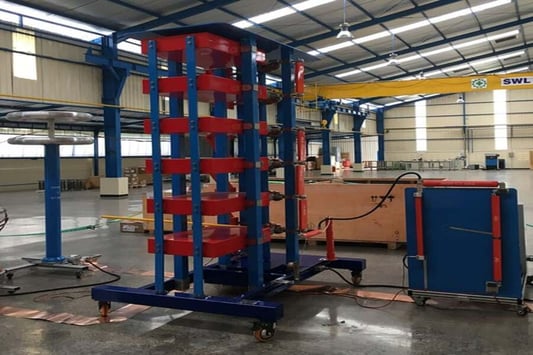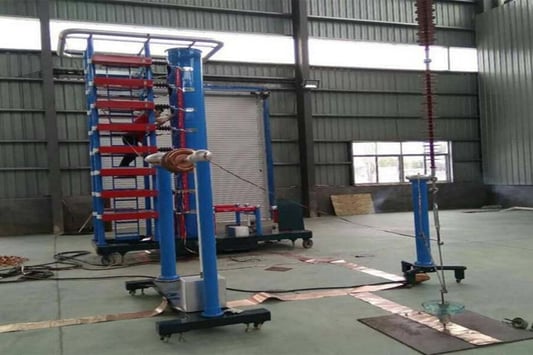Understanding Impulse Voltage GeneratorsImpulse voltage generators are essential tools used in high voltage equipment testing. They are designed to generate high voltage impulses that mimic lightning strikes or other types of voltage surges in order to test the durability and reliability of electrical equipment.Simulating Real-World ConditionsHigh voltage equipment such as power transformers, circuit breakers, and cables are subjected to various types of voltage stresses during their lifespan. Impulse voltage generators help simulate these real-world conditions in a controlled environment, allowing manufacturers to assess the performance and safety of their products.Calibrating Equipment SensitivityImpulse voltage generators are used to calibrate the sensitivity of high voltage testing equipment such as surge arresters and protective relays. By generating precise voltage impulses, these tools can ensure that the equipment is functioning properly and will respond effectively in case of a voltage surge.Testing Insulation StrengthOne of the primary uses of impulse voltage generators is to test the insulation strength of high voltage equipment. Insulation breakdown can lead to catastrophic failure, so it is crucial to ensure that the insulation materials can withstand high voltage impulses without any degradation.Evaluating Overvoltage ProtectionHigh voltage equipment is susceptible to overvoltage conditions, which can cause significant damage if not properly mitigated. Impulse voltage generators are used to evaluate the effectiveness of overvoltage protection devices and systems, ensuring that they can safely handle transient voltage spikes.Verifying Equipment PerformanceBefore high voltage equipment is deployed in the field, it must undergo rigorous testing to verify its performance under various operating conditions. Impulse voltage generators play a crucial role in this testing process, helping manufacturers identify any potential weaknesses or vulnerabilities in the equipment.Compliance with Industry StandardsImpulse voltage testing is a common requirement in the electrical industry, with various standards and regulations specifying the test procedures and criteria. By using impulse voltage generators, manufacturers can ensure that their high voltage equipment meets the necessary compliance standards and regulations.Research and DevelopmentImpulse voltage generators are also used in research and development to study the behavior of high voltage equipment under different voltage stress scenarios. This research helps in improving the design and performance of electrical equipment, leading to more reliable and efficient products.Preventive MaintenanceRegular testing using impulse voltage generators can help identify potential issues with high voltage equipment before they escalate into serious problems. This preventive maintenance approach can extend the lifespan of the equipment and reduce the risk of unexpected failures.Enhancing Safety and ReliabilityOverall, impulse voltage generators play a critical role in enhancing the safety and reliability of high voltage equipment. By subjecting the equipment to realistic voltage stress conditions, manufacturers can identify weaknesses, improve performance, and ensure that the equipment meets the highest safety standards.Quote InquiryContact us










